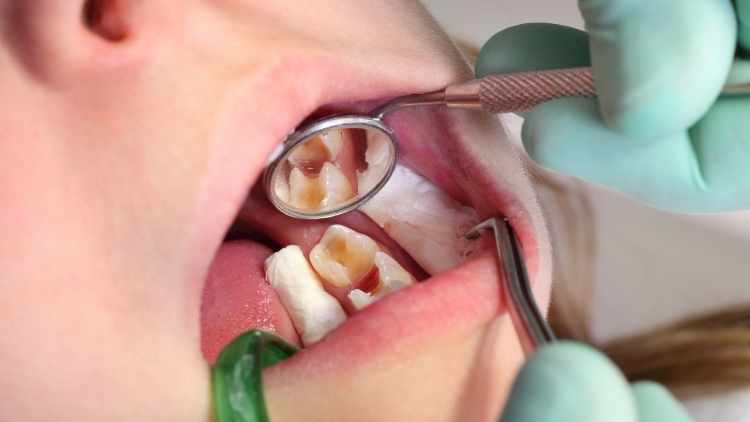
There are many risk factors for cavities. Want to know if you may be at risk for them? The truth is anyone with teeth has the potential for getting cavities. Regular brushing, flossing, and preventative dental checkups can help prevent cavities, but it’s important to understand the other factors that can cause them. Here are five things that can increase the chance of getting cavities.
What Are Cavities?
Cavities are small openings that develop from permanently damaged areas on the hard surface of your teeth. Also called caries, cavities are the result of decaying teeth and are one of the most common dental health issues in the world. If untreated, they can lead to infection, pain, and even the loss of teeth. Here are five things that can increase the chance of getting cavities.
1. Location of Teeth
Molars and premolars (your back teeth) are the most susceptible to getting cavities. This is because they have many grooves where plaque can collect and are more difficult to clean than front teeth.
2. Diet
Certain foods and drinks are harder to remove from your teeth because they cling to the surface for a longer period of time. Sugary drinks and hard candies are a few examples but even milk and ice cream can be difficult to remove from your teeth.
3. Before Bed Eating or Snacking
If you eat or drink before bed and don’t brush, the food particles will remain on your teeth for the duration of the night and accelerate the plaque buildup, especially in children. Frequent snacking or drinking of sugary drinks simply acts as more fuel for the buildup of plaque which is the primary cause of cavities.
4. Poor Brushing Technique
The reason it is recommended you brush twice a day is that the tooth decay process can begin right when plaque forms. It is imperative to brush your teeth soon after eating and drinking.
5. Dry Mouth
If you suffer from dry mouth, your chances for cavities are much greater. That’s because saliva can help to counteract acids that come from bacteria. Some medications can increase dry mouth symptoms and result in accelerated tooth decay that leads to cavities.
While other risk factors exist, these are some of the primary ones that precede cavities. In addition to brushing, flossing, and dental checkups, you can counter these factors in a variety of ways. From dental sealants to increasing the amount of water you drink, talk to your dentist to learn all the ways you can prevent cavities from forming.
If you have untreated cavities or haven’t been to the dentist recently, make an appointment today.

 Request an Appointment
Request an Appointment